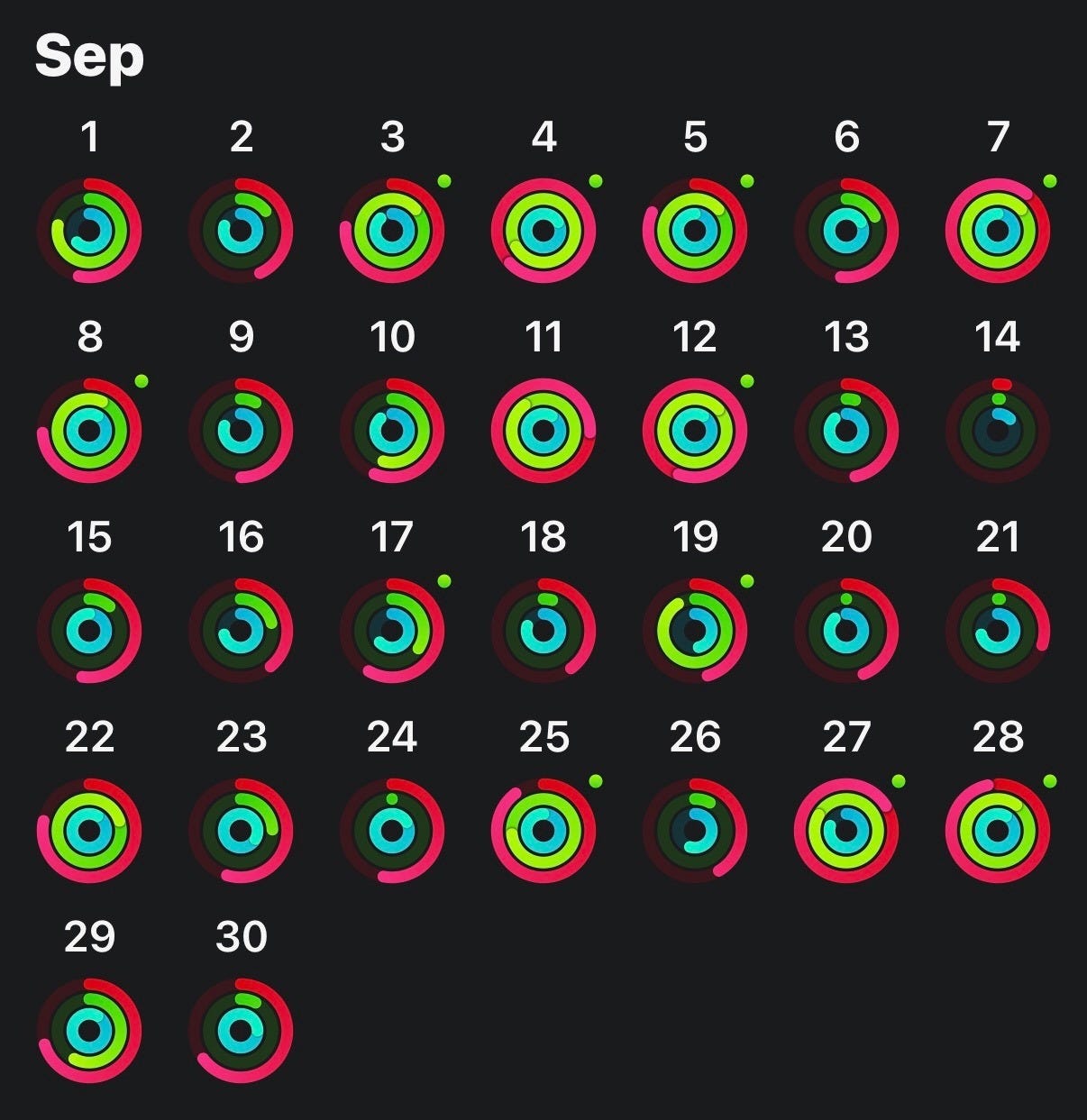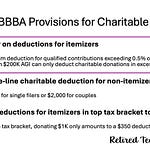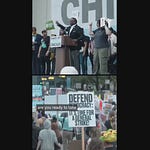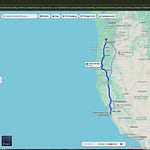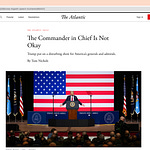I technically met four out of four of my New Year’s resolutions this year. So why do I feel like I failed all of them?
On Thursday before heading out to beers, one of our friends asked me about my progress on my New Year’s resolutions. After all, she said, we still have over a month to get our goals over the finishline.
I wrote a past Substack article on my 2025 New Year’s resolutions. I don’t normally make New Year’s Resolutions, but, in this era of my life, I’m doing quite a bit of reflection. That reflection was the motivation for this Substack and the associated podcast.
When our friend asked about the goals, I replied that throughout the year, I realized I wasn’t actually achieving the spirit of these goals and, like most, dropped them.
However, she came back afterwards and said that the goals could be interpreted in ways that I could meet them. That was also true, and it made me think how in a business-related situation, many employees of past consulting clients could claim to meet their SMART goals or OKRs (objective and key results) even when the company didn’t achieve its stated goals.
I had four resolutions, and I’ll explain how each of them has played out so far, along with some reflections.
Why This Matters in Retirement
Here’s the thing about retirement goal-setting that I didn’t quite grasp when I started this year. In a company, when an employee games an OKR or technically meets a metric without the company achieving its underlying objective, it is frustrating but ultimately the company’s problem. The quarterly review happens, people nod, and everyone moves on to the next quarter.
But in retirement, I am both the employee doing the work and the company seeking results. When I game my own OKRs, the only person I’m fooling is myself. And unlike a corporation that can pivot strategies or restructure the organization, I have exactly one life and a finite amount of time to figure out what I should really be doing.
I think what I was hoping for with these New Year’s Resolution was to put some structure around creating more meaning in retirement. How could I translate that meaning into a set of activities that I could perform and metrics I could measure myself against? Instead, I think I came up with a list that looked good to me on the screen, but somehow missed the point entirely.
Goal 1: Do my first bartending gig
Verdict: Technically yes, spiritually no
The first resolution was seemingly straightforward, which was “do my first bartending gig.” I explained in my post that I have a friend that owns a taproom, and he wanted a buddy to do it with him. I went ahead and got my OLCC (Oregon Liquor and Cannabis Commission) server permit, and was psyched to do it with him.
Concurrently, he was in the early phases of a long-distance relationship with his current partner (we LOVE her by the way!), and his schedule was a little uncertain. Not long after, the bar decided to transform from beer and wine only to also serving pre-mixed cocktails, which has a different set of regulations. These regulations involve the requirement to serve hot food on premises. So, now the job went from chatting about beer, pulling beers off the tap, and doing some lightweight wiping of counters and tables to the full job of food service. This addition of food service seemed less appealing. My friend and I also never signed up for doing regular shifts, so I consider the spirit of this resolution not really met.
I’m not angry about that. The purpose of doing this was a “guy thing” for me and this friend to do together, but I am so happy that he’s found love! Overall, the result was great! Moreover, I think serving cocktails and food is good for that business over just serving beer alone. As a customer, I had my first cocktails with friends at the place for Cinco de Mayo, and after four margaritas in, we ended up the night at another bar doing ad hoc drunk karaoke! I’m not sure that would have happened if we just started the night with beers!
So, here’s the rub. I don’t think I met the goal, and I’m happy with the overall situation. However, the way I wrote this was to do the “first bartending gig” and in fact, even though we didn’t ever take on a regular shift, we did actually go to the training calls, participate in the Slack channel, and do an in-person shift at the bar to get trained with customers. And technically, that in-person shift could have counted as a “first bartending gig.” I don’t count it as meeting the objective in spirit, but, in myconsulting gigs with many different companies since retiring, I’ve seen many employees claim credit on OKRs with a lot less substance behind them.
Goal 2: Time-based workouts in Q1
Verdict: Met in Q1, but the timeline didn’t test the situation
I’ve written before about the progression of my chronic kidney disease and the ongoing management of medications to try to slow the progression of the disease. The short version: medication side effects reduced my exercise tolerance, which meant that workouts that used to feel challenging were no longer possible to complete. I don’t think it was about being out of shape but rather about my body literally having less capacity to process exertion, like trying to run a computer on half its usual RAM.
As such, I set a resolution to no longer worry about my overall performance in exercise but to just set goals based on time. The original set of goals were about doing 4 x 20 minute workout days, plus 1 x 40 minute workout day per week. Ultimately, to simplify the program, Marsha helped me simplify this to a cool routine called “Japanese walking“. The concept was to do 30 minutes of walking, in alternate intervals of 3 minutes of fast walking and 3 minutes of slow walking. She was doing it three times a week with me, and this was meeting the objective! You’ll notice each week in Q1, there were at least 3 green “circles” of 30 minutes each.
I kept the routine up in Q1, so I technically met this goal. I did have an intentional rest from Japanese walking back in late July because of a toe injury, but I was still trying to stay active in general at the time.
However, the spirit of the goal was to be able to keep up the time regimen even as the drug regimen changed. And, while my drug regimen, with the addition of amlodipine, stayed the same throughout Q1, hormonal changes associated with the progression of the disease caused my blood pressure to creep up again later in the year. By September, I had a new drug regimen with kerendia and torsemide (described also on Substack), and my time-based workout routine went out the window.
So, again, technically, I made the objective in Q1 2025. I originally set the goal for Q1 figuring that once I did this, everything would become a habit. I did not realize though that what I really needed to do was to set goals that would span changes in drug regimen, not just pure time. My goal should not have been time-based (a quarter), but rather situation-based, which was “through at least 2 changes in drug regimen.”
Again, this is another problem I see in goal-setting, which is not setting the goals to survive the right external situations.
Goal 3: Find another project
Verdict: Did it, but so what?
Technically I met this one, too. I mentioned at the beginning of the year that I had space for another thing because I cleared the bigger consulting projects and volunteer assignments. Well, back in August, I did end up taking another consulting project with a friend, so technically I did “find another project.”
I am grateful for this project, as it’s very interesting, and I enjoy the people. At the same time, I don’t really feel like this was a “new” thing to do, as it’s more of the kind of thing I’ve been doing for the last seven years.
Another friend pointed me to some increased political involvement and the political slant to my communications with others, as potentially another “project,” but I sort of just viewed all of that as part of this Substack, which was an existing project.
But here’s what I didn’t write down and probably should have. I wanted to find something that would surprise me. Something that might help me explore or express some other part of myself.
The consulting project is good work, and I like it. But when I’m doing it, I’m still reaching into the same toolkit I’ve been using for the last seven years. It’s like if my goal was “try a new restaurant” and I went to a different location of a chain I’d already been to. Sure, technically I went somewhere new, but did I really?
The political involvement thing is interesting. However, is that really a new project or just an extension of the same reflection and communication I’ve been doing here on Substack? I’m not sure. And that uncertainty itself feels like evidence that I didn’t meet the spirit of this goal either.
So, in spirit, I’m not sure I met the objective of what I was thinking about, but again, I technically met this objective because I didn’t write “Find a new project that would allow me to explore or express a different side of myself in my retirement journey” or something like that.
Goal 4: Figuring out what to do with this Substack
Verdict: Added a podcast, grew 57%, but still not sure what I’m doing
Technically, I think I could call this one done, as I did add podcasts to the blog format, and I do get at least some engagement from different platforms (YouTube, Apple Podcasts, and Spotify). The number of Substack followers has grown 57% since the beginning of the year.
At the same time, I am not sure I’ve broken the ground further here on my own internal reflection, and I’m still not sure I’ve created something that is really that interesting to people who don’t know me personally. From an activity perspective, I am kind of still doing more-or-less the same thing, but now with more time doing video-editing and less time sorting through and expressing ideas.
The engagement I do get is mostly from people who already know me personally. While there isn’t much commenting in the Substack itself, I continue to enjoy all the out-of-band text messages, emails, and mentions I get in conversations with friends.
But I’m still not sure I’ve created something that stands on its own or something a stranger would stumble across and think “this is exactly what I needed to read today.” And while I’m not sure I really ever stated it cleanly as a goal, I realized I was hoping to figure out whether my Substack could, in addition to supporting my own reflection process, help other people navigate similar transitions.
So again, I did the activities. The numbers went up. But the underlying question of how I really intend to find meaning or make a difference remains unanswered.
And this is sort of the thing I see often when I watch people review their goals. They might technically feel OK about activities and even the follow-on stats, but there is still something missing in terms of the actual results they are trying to achieve.
What I Actually Learned
The problem isn’t SMART goals themselves. In the right context, such as launching a product, hitting a revenue target, or even training for a specific running race, I suppose they work fine. The problem is that I took a framework designed for organizational execution and tried to apply it to something that’s fundamentally not an execution problem.
For me, retirement hasn’t worked like a project with a defined scope and success criteria. It’s more like... improvisational jazz? I have some themes I’m trying to explore, but I’m also responding to what’s happening in the moment and with the people around me. My friend finding love changed the bartending goal. My disease progression changed the workout goal. The actual experience of video editing changed what I thought I wanted from this Substack.
I am confident I could probably reword my retirement goals to be more specific about underlying themes and potentially iterate again. The question is whether I should bother!
What do you think?
I know I tend to be hard on myself when it comes to these exercises, which is likely a reason why I normally don’t do New Year’s Resolutions. Something feels disingenuous about the whole process. In this case, I think I went through the motions of setting SMART goals, did the activities for the prescribed times, and even met the metrics. I think I still missed what I was really after.
Looking ahead to 2026, I don’t think I’ll set any SMART goals this time so that I can immerse myself more in the themes. Going back to the analogy of improvisational jazz, one of my friends who was a very talented improvisational jazz musician would often put aside some of the technical practice to just listen to a lot of jazz. To him, experiencing the music was an important part of being musical. Likewise, in this phase of retirement, I believe I should immerse myself more in the themes I’m trying to explore, and to get much more in-tune with what I’m really seeking.
In my case, I think my goals were about having a retirement with another guy-friend-activity, being able to stay motivated in exercise even through changes in drug regimen, finding a new experience to explore another side of me, and really hitting my stride with this Substack. However, in stating my journey in the form of SMART goals, I somehow recast the mission. Even though I technically met some stated metrics, I really didn’t achieve what was deep-down in my intentions.
Overall, this was just a call to think about this differently!




